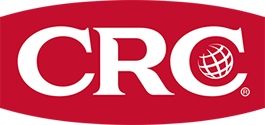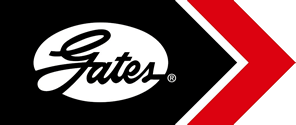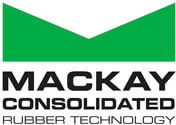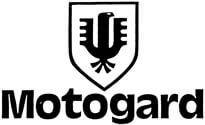Cooling System Services
As the engine in a vehicle does it job, it heats up. The engine needs to be kept at a certain temperature so that it can function efficiently. This is where an engine cooling system comes into play. The radiator is a major component in a engine cooling system. The image below illustrates the various parts of an engine cooling system.
If any part of the engine cooling system is broken, blocked or damaged, it will not work properly. The excess heat will not be dissipated and the engine's temperature will rise to a point where mechanical damage can occur. This is commonly known as overheating.
Modern vehicles are equipped with a liquid-based cooling system that extracts the excess heat by circulating coolant (i.e. anti-freeze) through the engine. Check out the videos below for a little more about how this all happens.
Vehicle Heat Exchangers
A Heat Exchanger is a device that transfers heat from a hot fluid (liquid or gas) to a cold fluid. A radiator is just one type of automotive heat exchangers. Other examples of automotive heat exchangers include intercoolers and heater cores.
Intercoolers are heat exchangers used on turbocharged / supercharged internal combustion engines to cool down the hot compressed air coming from the turbocharger / supercharger. There are 2 main categories of intercoolers: air-to-air or air-to-liquid.
Here at Radiator Services in Blenheim, we have years of experience repairing / servicing all types of automotive and marine heat exchangers. We also provide a wide range of engine cooling system components and services at very competitive prices.
We work on ALL types of land vehicles and marine crafts.
It doesn't matter the brand, the make or the model.
Bring yours in for a check up and routine servicing.
Standard Autos
Standard Auto Radiators
As explained in one of the videos above, a properly maintained cooling system will keep your engine operating at about 200°F or 96°C where it is the most fuel-efficient and has the fewest emissions.
To keep your engine cooling system in tip-top shape, there are some things that you can do yourself while others you should leave to the experts. See the videos below for more details.
High-Performance
High-Performance Radiators
The engine cooling system in vehicles such as racing cars, hot rods and classic cars need components that are more advanced than in regular passenger vehicles. These include high-performance radiators and radiator hoses.
We have years of experience working with high-performance cooling systems and can advice you on the right parts for your vehicle.
Heavy-Duty
Heavy-Duty Radiators & Intercoolers
Some vehicles require heavy-duty radiators and intercoolers.
While radiators and intercoolers are both automotive heat exchangers, they perform different functions. The radiator's purpose is to prevent the engine from overheating while the intercooler's purpose is to increase the performance of the engine.
Intercoolers are used in engines where there is a turbocharger or a supercharger.
Commercial Vehicles:
- Buses
- Coaches
- Dump Trucks
- Flatbed Trucks
- Light Trucks
- Step Vans
- Tow Trucks
- Utility Vans
Industrial Vehicles:
- Bulldozers
- Concrete Mixers
- Cranes
- Excavators
- Forklifts
- Harvesters / Pickers / Reapers
- Pavers / Road Rollers
- Tractors
Other Vehicles:
- All Terrain Vehicles (ATVs)
- Campers
- Hot Rods
- Motorhomes
- Racing Cars
- Recreational Vehicles (RVs)
- Sport Utility Vehicles (SUVs)
Marine Heat Exchangers
Marine Heat Exchangers
As the name implies, Marine Heater Exchangers are heat exchangers used in marine vessels. Heat exchangers can be used for both heating and cooling purposes.
There are 2 types of Marine Cooling Systems: the Raw Water Cooling System and the Fresh Water (aka Closed) Cooling System.
The Raw Water Cooling System circulates water that is pulled in from outside the boat while the Fresh Water Cooling System circulates engine coolant. Some Closed Cooling Systems use a heat exchanger while others do not.
We can work on marine heat exchangers of all shapes and sizes.
For more information or to schedule an appointment call 03 578 8176
We service all areas in Marlborough, Nelson, Tasman, and West Coast including:
Blenheim, Havelock, Kaikoura, Picton, Renwick, Seddon, Waiau,
Motueka, Murchison, Nelson, Richmond, Takaka, St Arnaud, Greymouth, Westport.
© 2017 - 2025 Radiator Services (1983) Ltd









